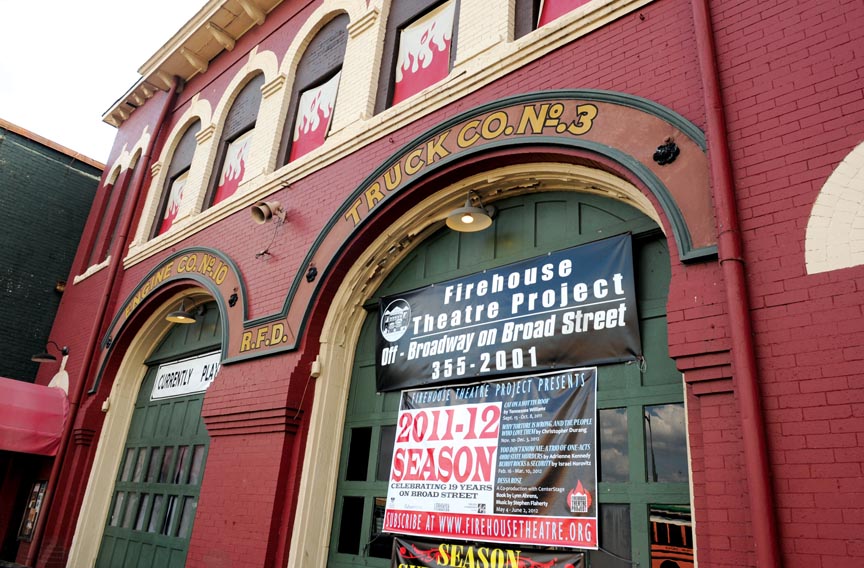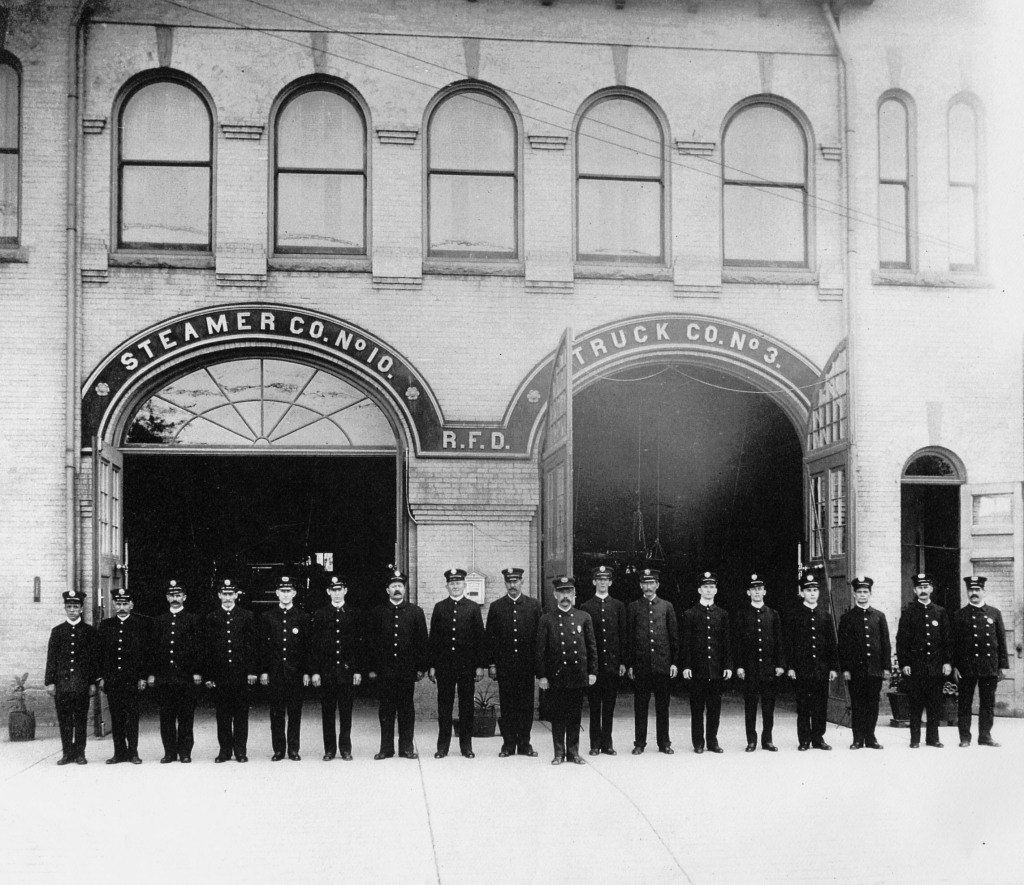Broad Street magazine’s namesake “has been the center of Richmond since its creation,” according to the blog Mapping American History, which also notes that “the structural diversity [of Richmond], especially found on Broad Street, was a result of the constant adaptation of the city and its need to acclimate to the changing times.”
After Fire Station House No. 10, near Broad Street and Lombardy, saw its fire crew vacate to a new station in Richmond, a theater company kicking off in 1993 with a goal of producing contemporary American plays sought to claim it for their company’s venue, reports Rich Griset for Style Weekly:
“… the fledgling theater company asked City Council to stage a fundraiser at the station. Council agreed, as long as the group ponied up $2,000 to cover insurance fees. Novelist and then-board member Patricia Cornwell paid, and the Firehouse Theatre Project began.
But the city still owned the building, using it to park ambulances and other city vehicles. For the next two years, whenever the theater company wished to stage a show, the vehicles had to be moved and a new building permit obtained from the city to erect a stage.
All was going well until the city put the building on its surplus property list. [The theater’s founding artistic director, Carol Piersol] met with then-Mayor Tim Kaine in an attempt to negotiate a $1-a-year lease, but the city was determined to sell the property. Kaine made them a deal: If the Firehouse raised $80,000, it could buy the building.
After attending a show at the Firehouse, developer Roy Sutton stepped in and purchased the building. He allowed the company to operate in the old fire station as long as it paid the interest. He would hold onto the property until the theater could buy it from him. In the end, Sutton donated the building outright.
‘It was like a Cinderella play, a miracle,’ says Piersol, who studied under Sanford Meisner at the Neighborhood Playhouse in New York City. The Firehouse obtained grant money to fix the roof and added risers to give the audience a better view of the stage. It obtained a new certificate of occupancy, cleared parking with the city and made the building handicapped-accessible. By this time, all of the founding members except Piersol and Kollatz, a senior writer at Richmond Magazine, had moved away, but the Firehouse continued its mission of producing off-Broadway on Broad Street.”
While customers began trickling in to the Firehouse shows, they’d walk under the gaze of “a life-sized figure of a fireman (which) stood guard over the theater’s lobby for years. He was a hit at fundraisers, donors happily snapping photos with him. He liked to startle volunteers as they entered the building for a day’s work, appearing at first to be a live person instead of a former fountain. But the Firehouse’s unofficial mascot is gone, unceremoniously thrown into a Dumpster and hauled away in the fall,” Griset wrote January 15, 2013. “The fireman is gone.”
And so was Piersol, from her founding role, whose ouster in December 2012 provoked “Protests and rallies. Board member resignations. Season ticket holders asking for refunds. Some theater artists are boycotting the Firehouse until Piersol is reinstated,” Griset noted, adding, “… is the removal of the Firehouse fireman just a sign of changing times, or an indication that some fundamental spirit of the theater has vanished?”
A month later, in February 2013, Katherine Calos of the Richmond Times-Dispatch followed up on what would result for the Theatre and Piersol. Read the article here.
“The Firehouse has been an artistic home to a lot of people. That’s more than selling a ticket. That’s a spiritual thing. It’s as important as any church in terms of what that theater has provided for this community in sort of a nurturing way. It’s a place for dialogue to take place on the human condition and things that matter,” said Firehouse production “Death of a Salesman” director Rusty Wilson to Calos.
(x)










